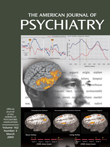To the Editor: We appreciate the response of Dr. Citrome et al. and agree with their points on the use of antipsychotic polytherapy. Polytherapy may, in fact, be a result of shortened length of inpatient hospitalization and the subsequent perceived need to treat patient symptoms more aggressively. It is also possible that the patients discharged receiving polytherapy may be a subset of more refractory patients; however, we were not able to gather such information from this specific study. We recognize the limitations of a retrospective study. The brief period over which the patient information was recorded leaves room for interpretation as to whether the rate of polytherapy was due, at least in part, to cross-titration or was rather a deliberate long-term plan. There is no doubt that more randomized, double-blind studies are needed to ascertain the clinical benefits of antipsychotic polytherapy.
The points addressed by Drs. Strous and Lerner are valid and warrant further investigation. Combination antipsychotic therapy may be used more frequently in patients who have failed to respond to monotherapy. Failure to respond to monotherapy treatment and the need to treat nonresponsive patients more aggressively, therefore, may result in a longer length of stay and an increased incidence of adverse events. Because of the retrospective nature of this study and the limited period of time over which patient information was gathered, it was not possible to separate the cohort by level of treatment responsiveness. However, patients in the monotherapy and polytherapy groups were matched by diagnosis and severity of illness (as assessed by the Clinical Global Impression scale and the GAF scale) in order to make more accurate comparisons. A prospective study in which monotherapy and polytherapy are compared in a group of patients who are more homogenous in terms of level of responsiveness to antipsychotic medications would be a worthy and valuable endeavor.
We agree with Dr. Case and his associates that there are inherent limitations in the retrospective rating of symptoms in a review of inpatient medical records and, more specifically, that there are items in the Positive and Negative Syndrome Scale that are more difficult than others to score retrospectively. However, since all items of the Positive and Negative Syndrome Scale were scored in the same manner for both the monotherapy and polytherapy patients, we do not feel that any bias in rating affected our comparison of the two groups.

